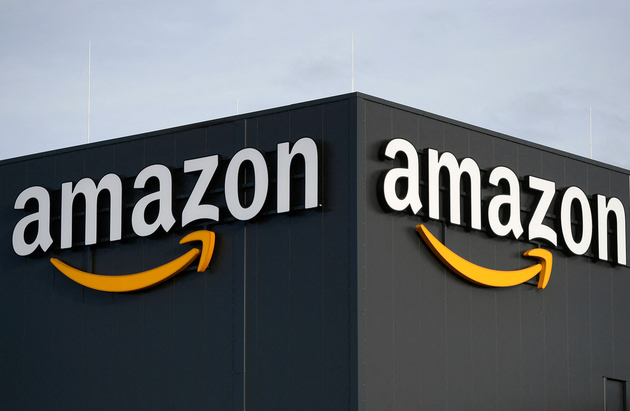
Photo/VCG
1. Amazon releases chatbot Q
Amazon is stepping up its efforts to defend its leadership in the cloud computing market. The company released chatbot Q which is based on GPT-3. Q is a new digital assistant that uses generative AI to help enterprise customers with tasks such as searching for information, writing code, and reviewing business metrics.
Analysis: Amazon's chip strategy reflects its ambitions in the cloud computing and AI fields. The company is both increasing its self-development capabilities and maintaining its partnership with Nvidia. This means more choices and better value for Amazon's customers.
2. Rolls-Royce to drop electric and hydrogen-powered aircraft, saying traditional power will remain the mainstream for at least 20 years
Rolls-Royce said on Tuesday that it would drop electric and hydrogen-powered aircraft, as the company believes that traditional power will remain the mainstream for at least the next 20 years. CEO Tufan Erginbilgic said in a media call: "I don't believe hydrogen will be a player in the next 15 or 20 years." The aviation industry is facing pressure to decarbonize, and the world's largest aircraft manufacturer, Airbus, is betting on hydrogen-powered aircraft to be in service by 2035.
Analysis: Rolls-Royce's decision could put it at a disadvantageous status in the future aviation market, as electric and hydrogen-powered aircraft are the future trend. The supply and cost of sustainable aviation fuel remain a challenge.
3. Nvidia expands its self-driving team in China
On November 29, Nvidia announced on its WeChat account that it is expanding its self-driving team in China. The open positions include planning and control, system integration, mapping, and testing, totaling 25. The team is led by Wu Xinzhou, who resigned as vice president of the autonomous driving unit at Xiaopeng Motors in August this year.
Analysis: Nvidia's expansion of its self-driving team in China shows its emphasis and confidence in the Chinese market, and also reflects the demand and potential in China for autonomous driving.
4. UK CMA: Adobe's $20 billion acquisition of Figma could harm competition
The UK Competition and Markets Authority (CMA) said on Tuesday that Adobe's proposed $20 billion acquisition of Figma could lead to "significant lessening of competition" in the UK market. The findings of the investigation, published on Tuesday, showed that the deal could lead to "significant lessening of competition" in three areas: the global market for interactive product design tools, vector editing tools, and raster editing tools.
Analysis: Adobe's acquisition of Figma could have an adverse impact on the design tools market, as Figma is one of Adobe's main competitors, and Adobe already owns popular products such as Photoshop and Illustrator.
5. World's first transatlantic flight powered by 100% sustainable aviation fuel takes off
A Virgin Atlantic Boeing 787 passenger plane took off from Heathrow Airport in London at 12 noon local time on Tuesday, marking a key step forward for the global aviation industry, which has been struggling to reduce emissions. The plane was unique in that it was the first transatlantic flight to be powered by 100% sustainable aviation fuel (SAF).
Analysis: Virgin Atlantic's first transatlantic flight powered by 100% SAF is a milestone, demonstrating the aviation industry's efforts and progress in reducing emissions and addressing climate change.
6. Toshiba develops new lithium-ion battery without cobalt, fast charging to 80% of capacity in 5 minutes
Toshiba Corporation announced on Tuesday that it has developed a lithium-ion battery that does not contain cobalt. In tests, the new battery can be charged to 80% in 5 minutes, and Toshiba is aiming to commercialize it in 2028. The company said that the new battery can be used in a wide range of applications, from ordinary power tools to electric vehicles.
Analysis: Toshiba's new lithium-ion battery without cobalt is a major technological breakthrough. It can solve two major challenges facing the battery industry today: the scarcity and high cost of cobalt, and the safety and charging speed of batteries.
Disclaimer: The content and data of this article are for reference only and do not constitute investment advice. Verify before use.


 川公网安备 51019002001991号
川公网安备 51019002001991号





